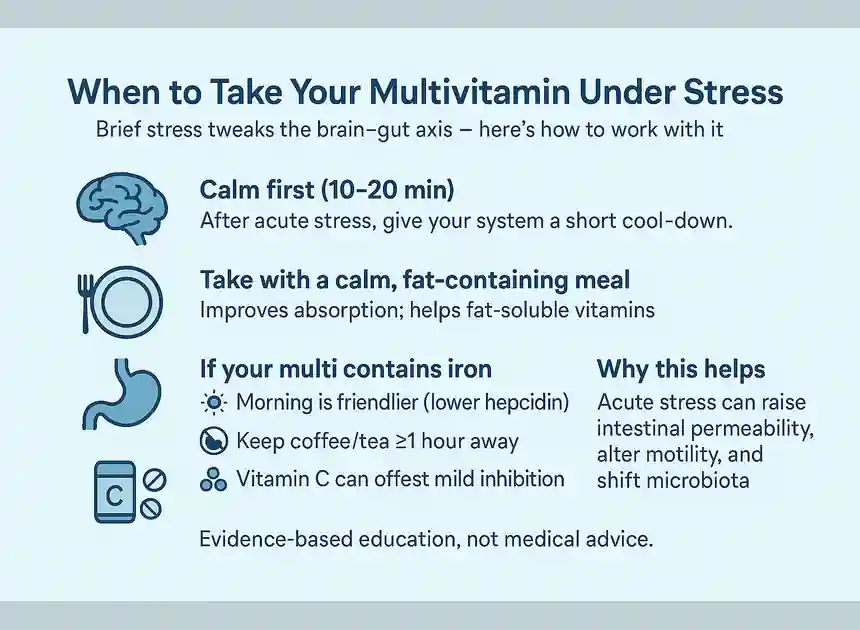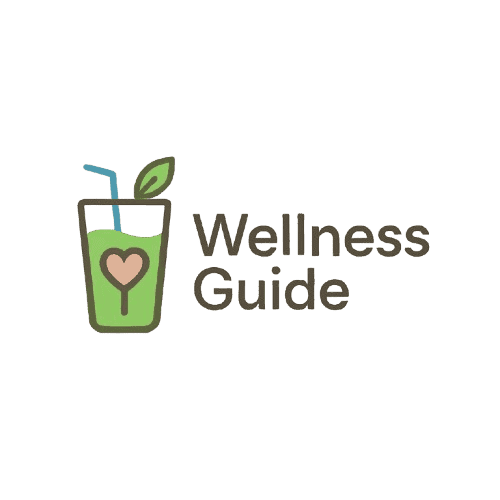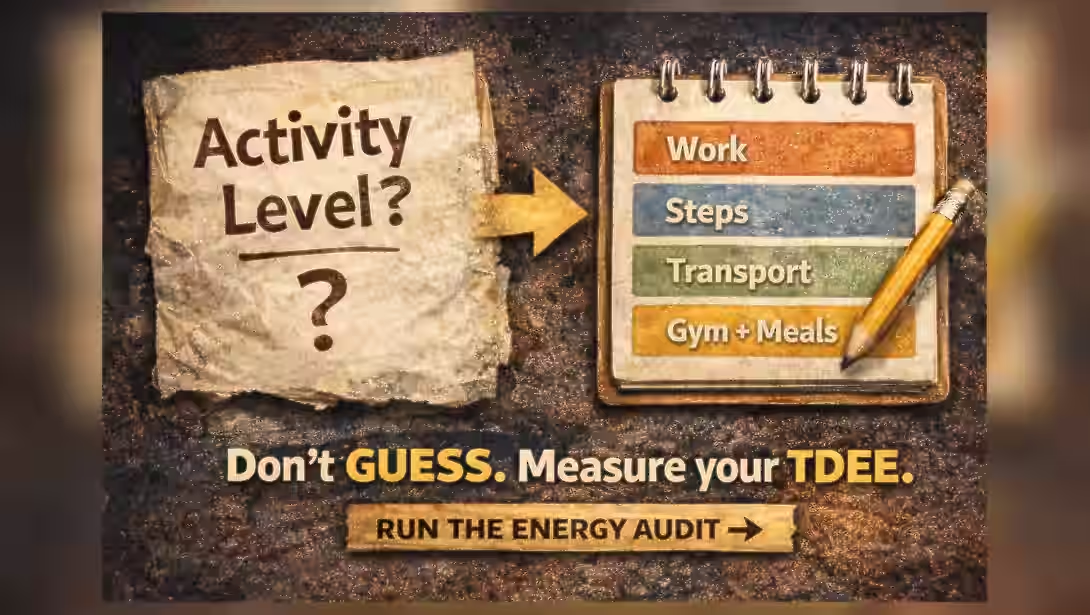
Stress and Its Effect on Health: Best Multivitamin Timing
Stress and its effect on health goes beyond mood: acute psychological stress disrupts the brain–gut axis, raising permeability and shifting motility/microbiome—so vitamin/mineral absorption (iron, magnesium, B-vitamins) can drop. Learn quick, evidence-based timing and meal-pairing fixes for better stress and digestion, energy, and focus.
Is stress really just “in your head,” or is it quietly draining your health? In today’s fast-paced world, stress and its effect on health reaches far beyond mood: psychological stress can disturb the brain–gut axis, slow intestinal blood flow, and disrupt helpful microbes—undercutting digestion and the way your body absorbs vitamins and minerals. These micronutrients power energy, immunity, and brain function; when absorption falters, you may feel it as low mood, brain fog, fatigue, or frequent colds—classic stress effects on mental health tied to stress and the brain.
Could your low magnesium or B12 be less about your diet—and more about your stress load? This guide connects stress and health with nutrient absorption, names the nutrients most affected, and shows simple, low-risk fixes that actually work.
Note: medically reviewed, evidence-based education—not a diagnosis. See references and consult your clinician if symptoms persist.
Up next: a concise, evidence-based mini-guide to easing stress—adapted from Stop Overthinking: 23 Techniques to Relieve Stress, Stop Negative Spirals, Declutter Your Mind, and Focus on the Present. Subscribe now to get it first.
Why stress lowers nutrient absorption
Stress and its effect on health isn’t just about mood. Acute and chronic psychological stress can change how your gut works—reducing the absorption of vitamins and minerals—even when you eat well or take supplements. Here’s the short, practical why:
- Barrier leakiness (“intestinal permeability”): Stress hormones—especially CRH—can make the small-intestine lining more porous via mast cells. Think of tiny gaps that let the wrong things through and blunt nutrient uptake. [1]
- Motility & “gut-brain axis” shifts: Nerves that run between the brain and gut can speed up or slow digestion under stress, so food moves at the wrong pace for optimal absorption. [2, 3]
- Microbiome changes: Stress is linked to measurable shifts in beneficial gut bacteria—the helpful partners that assist with digestion and produce some B-vitamins. [4]
- Iron has a special blocker: Stress-related inflammation raises IL-6, which boosts hepcidin (the hormone that locks iron in the gut wall). Result: lower iron absorption and low ferritin—even if you supplement. (Hepcidin = iron “gatekeeper.”) [5, 6]
What you might notice (real-world clues): ongoing stress and digestion issues (bloating, diarrhea/constipation), fatigue or brain-fog, more frequent colds, or labs hinting at iron/B-vitamin shortfalls despite a decent diet—classic signs of stress tugging on stress and gut health and the brain–gut loop. [3]
Most-affected micronutrients
- In the context of stress and its effect on health, stress states (exams, poor sleep) are linked to higher urinary magnesium loss, which can gradually deplete body stores even when intake looks okay. [8, 7]
- Testing tip: Serum magnesium can look “normal” while total body Mg is low (~<1% of Mg is in serum). If risk/symptoms are high, pair serum with RBC Mg or a 24-hour urinary Mg—interpret cautiously; no single test is definitive. [18]
- When to see a clinician: Red flags (palpitations/arrhythmia, marked weakness) or persistent symptoms despite a “normal” serum result. Note that RBC Mg lacks standardization and 24-h urine varies with renal handling—interpret in clinical context. [7–8],[19]
- Vitamin C — In the context of stress and its effect on health, vitamin C is integral to the adrenal/HPA-axis response to psychological stress. Human trials show that high-dose ascorbic acid can blunt cortisol reactivity to acute stress (public-speaking TSST) and may lower chronically elevated cortisol/DHEA-S in stressed adults—why many people see value in vitamin c for stress/stress and vitamin c strategies when stress is sustained. [9- 10], [17]
- B-vitamins — In the context of stress and its effect on health, shifts along the stress and the gut-brain axis can remodel your microbiome, shrinking cross-feeding of folate, B1, B2, B6, and B12 by healthy gut bacteria—a quiet driver of stress and digestion issues and lower B-vitamin availability.
Do this: to support stress and gut health, add fermented foods (to nudge diversity) and keep dietary fiber steady (to feed core producers) so your microbiome can better sustain B-vitamin production. [11][4] - Iron — stress-related inflammation raises IL-6, which induces hepcidin (the iron “gatekeeper”) to degrade ferroportin in gut cells and macrophages—reducing iron absorption/export so ferritin can stay low even with supplements. In short: stress + inflammation → IL-6 ↑ → hepcidin ↑ → less absorbed iron (even on a good diet). [14], [6]
- Zinc — inflammatory signals (e.g., IL-6) induce the liver transporter ZIP14, pulling zinc out of blood (hypozincemia) during stress-inflammation. [12]
- Vitamin D — shift work is linked to lower 25-OH-D on average (meta-analysis). To counter this, anchor your clock with planned daylight soon after your biological morning (after your main wake time on off-days; bright-light if no sun). When supplementing, take D with your largest fat-containing meal for better absorption—and draw labs at the same time of day for consistent tracking. [13] , [16]
Have a question about your symptoms or labs? Leave a comment below—a medical doctor will reply with educational guidance.
Note: evidence-based summary; not a diagnosis. See a clinician for persistent issues (e.g., anemia, ongoing GI pain, unexplained weight loss).
Coffee & Iron
- Not all vitamins: Coffee and tea don’t block most vitamins; they mainly reduce non-heme (plant) iron absorption because their polyphenols bind/chelate iron in the gut, forming insoluble complexes the intestine can’t absorb—so decaf can still inhibit (polyphenols remain even without caffeine). To minimize this, keep coffee/tea ~1 hour away from iron-rich meals or supplements or pair with vitamin C—especially relevant given stress and its effect on health can already impair iron handling.
- Why it matters with stress: In many people, stress and its effect on health includes higher hepcidin (an iron “gatekeeper”), which already lowers absorption. Combine that with coffee/tea at the wrong time and ferritin may stay low—so timing + meal pairing is key for steady energy and better stress and digestion outcomes.
Stress and Its Effect on Health: Best Time to Take Multivitamins
Why timing matters:
When acute psychological stress hits, the brain–gut axis flips into “fight-or-flight.” For a short time, three things can happen that make nutrients harder to absorb and can worsen stress and digestion:
- Intestinal permeability (“leaky gut”) can rise—tiny gaps open in the gut lining, so absorption is less efficient.
- Motility (how fast food moves) can speed up or slow down, giving the intestine too little or too much time to absorb vitamins and minerals.
- The microbiota (your helpful gut bacteria) can shift, reducing their support for digestion and stress and gut health.
Because of this temporary change, a little scheduling helps: take your multivitamin after you’ve calmed for 10–20 minutes and with a calm, fat-containing meal. That way you work with your gut—not against it .[20]
Do-this-now guide
- Cool-down, then dose with a calm meal
After an acute spike of mind stress, give yourself ~10–20 minutes to settle, then take your multivitamin with a steady, fat-containing meal (helps fat-soluble vitamins). (Mechanism: stress can transiently raise gut permeability/motility; a calm window + dietary fat favors uptake.) [ 20] - If your multivitamin contains iron, use a “smart window”
- Morning is friendlier: hepcidin—the iron “gatekeeper”—is lowest in the early morning and rises across the day, so a morning dose tends to absorb better. [21]
- Keep coffee/tea away by ≥1 hour: polyphenols in tea/coffee reduce non-heme iron absorption; spacing by an hour attenuates the inhibition (shown for tea; coffee with a meal also reduces iron). [22]
- Vitamin C isn’t always necessary with medicinal iron: in iron-deficiency anemia, iron worked as well without routine vitamin C; prioritize timing over add-ons. [23]
- After hard workouts, wait on iron-containing doses
Moderate–hard exercise can raise hepcidin for ~3 hours, temporarily lowering iron absorption. Avoid iron-containing multis in that window. [24] - If you’re correcting low iron, don’t stack with the multi
Separating iron treatment from your multivitamin and using alternate-day dosing can improve absorption (clinical data in iron-depleted women). [25, 26] - Follow the label & keep expectations realistic
Formulas vary widely; basic MVMs are for “nutritional insurance,” not a cure-all for stress health effects or stress and digestion issues. Check your label for “with food” instructions and amounts. [27]
Stress eating → direct absorption hit
In the context of stress and its effect on health, two stress-driven habits quietly cut nutrient uptake and worsen stress and digestion:
- Dry mouth within minutes: acute psychological stress can lower salivary flow fast → poorer bolus formation and weaker “first-step” digestion. [28]
- Fewer chews → bigger particles: rushing meals under stress leaves larger food particles; smaller particles release more nutrients (higher bioaccessibility, incl. fats/carotenoids). Mastication quality directly shapes nutrient release. [29, 30]
- Pre-meal stress trims gut blood flow (fasted state): mental tasks can reduce superior mesenteric artery flow before eating; a calm start lets normal post-meal vasodilation support absorption. [31]
Do-it-now micro-fix (30–20–sip):
30 seconds of slow breaths → chew each bite ~20+ times to a soft mash → sip water early in the meal. This simple reset supports stress and gut health by restoring saliva, shrinking particle size, and easing nutrient release—small change, measurable payoff.
When stress isn’t a disorder—it’s habits, environment, and pace
In the context of stress and its effect on health, stress isn’t always caused by an illness or psychiatric diagnosis. It can stem from daily habits, the way we manage life, and our social/cultural environment (noise, clutter, doomscrolling, draining interactions). The result can feel very physical: faster heart rate, dizziness, fatigue, irritability, and headaches.
Why this happens
- HPA axis & autonomic shift: brief “fight-or-flight” surges raise adrenaline/cortisol and reduce vagal calm—so the body stays keyed up.
- Brain–gut axis: stress can temporarily increase intestinal permeability, alter motility, and shift the microbiota, which explains many stress and digestion complaints.
- Circadian drag: late nights + negative news bias disturb sleep, appetite, and food choices—amplifying symptoms.
A quick, practical example you can use today
After a tense meeting or doomscrolling burst:
- Cool down 10–20 minutes (slow breathing or a short walk).
- Take your multivitamin with a calm, fat-containing meal (better uptake, especially for fat-soluble vitamins).
- If it contains iron, keep coffee/tea ~1 hour away.
- Chew more (~20+ times/bite) and sip water early—easier digestion, smoother absorption.
- Walk 10 minutes after the meal to help gut comfort and energy.
Questions about timing, labs, or symptoms? Drop a comment below—a medical doctor will reply with educational guidance (not personal medical advice).
Note: This section summarizes human studies and high-quality reviews for educational purposes and is not medical advice. If symptoms persist, especially anemia, unexplained weight loss, or ongoing GI pain, speak with a qualified clinician.
What’s next
In an upcoming piece, we’ll unpack simple techniques to lower stress and negative spirals—drawing from Stop Overthinking: 23 Techniques to Relieve Stress, Stop Negative Spirals, Declutter Your Mind, and Focus on the Present.
Stress isn’t only a feeling; it briefly rewires the brain–gut axis, which helps explain stress and its effect on health—from “leaky” intestinal permeability and motility shifts to microbiota changes that blunt nutrient absorption. The quick win you can use today: cool down 10–20 minutes, then take your multivitamin with a calm, fat-containing meal, and keep coffee/tea ~1 hour away if it contains iron.
Keep the momentum with this 3-part, tightly connected series:
- Genotype & nutrient uptake — make your biology work for you. Learn how genetic variation can influence transporters, enzymes, and receptors involved in absorption and why that matters when stress nudges digestion off-track. Read: Genotype, Nutrient Uptake & How to Optimize Vitamin Benefits
- Do supplements actually work? An evidence-based look at what reliably moves the needle (and what doesn’t) when stress, diet, and the gut–brain axis intersect. Read: Do Supplements Work? An Evidence-Based Guide to Health
- Choose high-quality supplements—without guesswork. Decode labels, spot third-party testing (USP/NSF/ISO), and align forms/doses with your goals so you’re not paying for hype. Read: How to Choose High-Quality Supplements (Labels & Third-Party Tests)
References
[1] Vanuytsel T, van Wanrooy S, Vanheel H, et al. Psychological stress and corticotropin-releasing hormone increase intestinal permeability in humans by a mast cell-dependent mechanism. Gut. 2014;63(8):1293–1299. DOI: https://doi.org/10.1136/gutjnl-2013-305690. (PubMed)
[2] Margolis KG, Cryan JF, Mayer EA. The Microbiota–Gut–Brain Axis: From Motility to Mood. Gastroenterology. 2021;160(5):1486–1501. DOI: https://doi.org/10.1053/j.gastro.2020.10.066. (PMC)
[3] Leigh SJ, Uhlig F, Wilmes L, et al. The impact of acute and chronic stress on gastrointestinal physiology and function: a microbiota–gut–brain axis perspective. The Journal of Physiology. 2023;601(20):4491–4538. DOI: https://doi.org/10.1113/JP281951. (PubMed)
[4] Ma L, Yan Y, Webb RJ, et al. Psychological Stress and Gut Microbiota Composition: A Systematic Review of Human Studies. Neuropsychobiology. 2023;82(5):247–262. DOI: https://doi.org/10.1159/000533131. (PubMed)
[5] Reid BM, Georgieff MK. The Interaction between Psychological Stress and Iron Status on Early-Life Neurodevelopmental Outcomes. Nutrients. 2023;15(17):3798. DOI: https://doi.org/10.3390/nu15173798. (PubMed)
[6] Camaschella C, Nai A, Silvestri L. Iron metabolism and iron disorders revisited in the hepcidin era. Haematologica. 2020;105(2):260–272. DOI: https://doi.org/10.3324/haematol.2019.232124. (Haematologica)
[7] Pickering G, Mazur A, Trousselard M, Bienkowski P, Yaltsewa N, Amessou M, Noah L, Pouteau E. Magnesium Status and Stress: The Vicious Circle Concept Revisited. Nutrients. 2020;12(12):3672. DOI: https://doi.org/10.3390/nu12123672. (PMC, PubMed) (PMC)
[8] Grases G, Pérez-Castelló JA, Sanchis P, Casero A, Perelló J, Isern B, Rigo E, Grases F. Anxiety and stress among science students. Study of calcium and magnesium alterations. Magnes Res. 2006;19(2):102–106. DOI: not listed. PubMed: https://pubmed.ncbi.nlm.nih.gov/16955721/ (PubMed)
[9] Patani A, Balram D, Yadav VK, Lian K-Y, Patel A, Sahoo DK. Harnessing the power of nutritional antioxidants against adrenal hormone imbalance-associated oxidative stress. Frontiers in Endocrinology (Lausanne). 2023;14:1271521. DOI: https://doi.org/10.3389/fendo.2023.1271521. (PMC, PubMed) (PMC)
[10] Moritz B, Schmitz AE, Rodrigues ALS, Dafre AL, Cunha MP. The role of vitamin C in stress-related disorders. Journal of Nutritional Biochemistry. 2020;85:108459. DOI: https://doi.org/10.1016/j.jnutbio.2020.108459. (PubMed) (PubMed)
[11] Magnúsdóttir S, Ravcheev D, de Crécy-Lagard V, Thiele I. Systematic genome assessment of B-vitamin biosynthesis suggests co-operation among gut microbes. Frontiers in Genetics. 2015;6:148. DOI: https://doi.org/10.3389/fgene.2015.00148. (Frontiers, PubMed) (Frontiers)
[12] Liuzzi JP, Lichten LA, Rivera S, Blanchard RK, Aydemir TB, Knutson MD, Ganz T, Cousins RJ. Interleukin-6 regulates the zinc transporter Zip14 in liver and contributes to the hypozincemia of the acute-phase response. Proceedings of the National Academy of Sciences of the USA (PNAS). 2005;102(19):6843–6848. DOI: https://doi.org/10.1073/pnas.0502257102. (PubMed, PMCID: PMC1100791) (PubMed)
[13] Martelli M, Salvio G, Santarelli L, Bracci M. Shift Work and Serum Vitamin D Levels: A Systematic Review and Meta-Analysis. International Journal of Environmental Research and Public Health. 2022;19(15):8919. DOI: https://doi.org/10.3390/ijerph19158919. (PMC)
[14] IL-6 mediates hypoferremia of inflammation by inducing the synthesis of the iron regulatory hormone hepcidin , Published May 1, 2004 : JCI
[16] 25-Hydroxyvitamin D variability within-person due to diurnal rhythm and illness: a case report , DOI: 10.1186/s13256-018-1948-9, National Institutes of Health (NIH )
[17] A randomized controlled trial of high dose ascorbic acid for reduction of blood pressure, cortisol, and subjective responses to psychological stress , DOI: 10.1007/s00213-001-0929-6, pubmed
[18] Interpreting Magnesium Status to Enhance Clinical Care – Key Indicators , 2017 Nov , doi: 10.1097/MCO.0000000000000410 , PMC
[19] Magnesium Updated:June 2, 2022History of changes to this fact sheetNational Institutes of Health (NIH), Office of Dietary Supplements
[20]Psychological stress and corticotropin-releasing hormone increase intestinal permeability in humans by a mast cell-dependent mechanism ,2014 Aug,DOI: 10.1136/gutjnl-2013-305690, PubMed
[21] Circulating human hepcidin-25 concentrations display a diurnal rhythm, increase with prolonged fasting, and are reduced by growth hormone administration , 2012 Aug , DOI: 10.1373/clinchem.2012.186866, PubMed
[22] A 1-h time interval between a meal containing iron and consumption of tea attenuates the inhibitory effects on iron absorption: a controlled trial in a cohort of healthy UK women using a stable iron isotope , Epub 2017 Oct 18 , DOI: 10.3945/ajcn.117.161364, PubMed
[23] The Efficacy and Safety of Vitamin C for Iron Supplementation in Adult Patients With Iron Deficiency Anemia , 2020 Nov 2 , doi: 10.1001/jamanetworkopen.2020.23644 , PMC
[24] Association of Serum Hepcidin Levels with Aerobic and Resistance Exercise: A Systematic Review , by Phureephat Larsuphrom , MDPI - Publisher of Open Access Journals
[25] Iron absorption from oral iron supplements given on consecutive versus alternate days and as single morning doses versus twice-daily split dosing in iron-depleted women: two open-label, randomised controlled trials , 2017 Nov , DOI: 10.1016/S2352-3026(17)30182-5, PubMed
[26] Iron absorption from oral iron supplements given on consecutive versus alternate days and as single morning doses versus twice-daily split dosing in iron-depleted women: two open-label, randomised controlled trials , November 2017 , The Lancet
[27] Multivitamin/mineral Supplements , Updated: July 17, 2024,Office of Dietary Supplements
[28] Whole unstimulated salivary flow rate decreases during acute stressful condition , 2024 Jun , DOI: 10.1016/j.oooo.2024.02.028, PubMed
[29] A review of the impact of processing on nutrient bioaccessibility and digestion of almonds , 2016 Jul 31 , doi: 10.1111/ijfs.13192 , PMC
[30] The effects of carrot shape and oral processing behaviour on bolus properties and β-carotene bioaccessibility of raw carrots , ScienceDirect
[31] Effects of a mental task on splanchnic blood flow in fasting and postprandial conditions , 2010 Apr , DOI: 10.1007/s00421-009-1316-y, PubMed
How we reviewed this article
Sources
Our experts continually monitor the health and wellness space, and we update articles when new information becomes available.
Current Version
Sep 5, 2025
Written By
Nour Hany
Edited By
KirolosReda
Medically Reviewed By
DR. Rania Elserafy
Leave a comment
Your email address will not be published. Required fields are marked *

![Why Am I In A Calorie Deficit And Gaining Weight? [Fix]](https://wellness.culinarycreationss.com/public/storage/health-and-nutrition-1/why-am-i-in-a-calorie-deficit-and-gaining-weight-fix/4a48e795-580b-4097-aae8-42ae368bde7a.webp)
